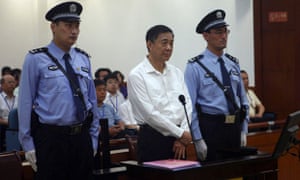Corrupt, anonymous and in thrall to the party – China is not the new Japan
Sunday 1 September 2013

It is a paradox. China is the world's leading exporter ahead of both the US and Germany. If you trust its figures, it is the second biggest economy. Yet it succeeds in making only 9.5% of internationally applicable, so-called "triadic", patents. This is a country whose growth has not been propelled by innovation.
The failure is matched by a parallel failure of Chinese firms to develop as multinationals. When Japan was rising to global economic prominence in the 60s and 70s, its car and electronics companies became household names. No such claim can be made for China. Its big companies, still either state-owned or heavily state-influenced, are largely anonymous. There are certainly no Chinese multinationals of the standing of, say, Toyota, Sony or Hitachi.
Chinese companies are embedded in one of the most fraudulent, corrupt societies on earth. Corruption and innovation are incompatible bedfellows. The Bo Xilai trial exposed the almost casual way senior Chinese officials expect to get vast kickbacks for advancing a company's interests. The incentives are clear: a company does not win market share or financial support by being innovative; it wins by greasing the palms of the officials who can deliver it captive distribution channels, captive orders and captive markets.
Innovation is driven by open interaction, by driving forward in a competitive market for fear that the next company will innovate if you don't, and by the confidence that the law will back any intellectual property rights you create and protect your profits. None of these preconditions hold in China.
Every company in China with more than eight employees has a Communist party official sitting on its board, ensuring party oversight of every activity – but also politicising it. The best way to get credit from a state-owned bank, order from a state-owned company or win a case in a state-owned court is to bribe the officials concerned. President Xi, like all his predecessors, has said he wants to root out corruption. But it is impossible. Those whom he appoints to act against corruption are themselves on the take.This is a society in thrall to one-party rule and the groupthink that accompanies it. The party cannot permit multiple economic centres of power to exist with the freedom to experiment and exchange information freely; it does not want to be surprised. It needs to control and monopolise ideas and information to sustain its power base. That monopoly also means that western-style competition in markets does not exist.
Intellectual property rights are a farce – unprotectable unless the company bribes the court. As a result the Chinese have become the most adept intellectual property thieves in the world. Why spend hard cash innovating when you can steal someone else's idea with impunity? Nobody trusts even the official statistics in China. Peking University's Professor Christopher Balding believes that because the party does not want to admit inflation has been so high, real growth in GDP has been overstated by as much as $1tn. Everything is manipulated by the party.
There is an iron law in economics: what cannot last does not last. China is the classic bubble economy, its innovative capabilities fatally undermined by the one-party state. The freedom to innovate is vital if China is to grow as it should – which means that, one day, one-party rule must end. The question is not if. It is when.
No comments:
Post a Comment
Comments always welcome!